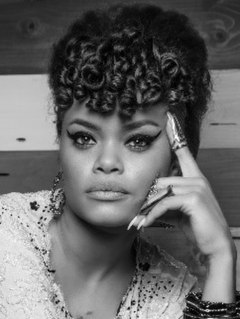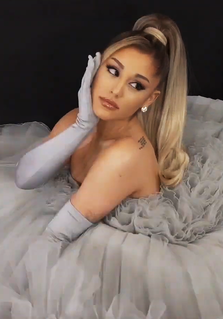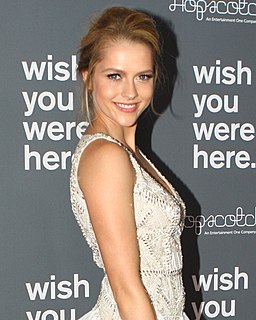A Quote by Andra Day
I actually like the sort of industrial, working-class woman like Rosie the Riveter, so I'm kind of like the sort of street style of the '50s.
Related Quotes
To me the sort of like, the ethos, if you will, of like tabloid is like Daily News in the 1970s. It's a news organization that thinks of its mission to speak directly to people who are kind of , the people who are sort of the foundation of the American workforce or were at one time. What I love about this conception of the tabloid is that actually everybody read it.
I don't know if any of you feel this way, but it's like eventually, you see a woman come on screen and you go, "Oh, thank God!" You just sort of need a break from all this testosterone, which happened, I think, in one of my films, The Hurt Locker. I was in it for like five minutes, and people were like, "You were in that movie!" And I was like, "Well, kind of." And they were like, "No, you were!" 'Cause they needed a woman!
I've really been sort of focused on acting and I feel really lucky because great projects sort of keep coming my way. I guess the criteria that I look for, it gets increasingly difficult because when you have the privilege of working with someone like Diane [Keaton], it's kind of like, 'Well, where do you go from there.'
For me, one of my life's mission is to disrupt these dated concepts of what it really looks like and means to be a working woman. The expression 'working man' is never heard in conjunction. But people still talk about this sort of 'working woman,' and there's a bit of negativity to that connotation.
I didn't really because I know myself well enough to know that if I actually sit down and think about sort of I can spook myself out like anyone, you know? It's sort of like you've got to sort of jump out of the airplane when you're skydiving. If you spend 20 minutes sitting on the lip you probably won't do it.
I like [George] Benson because I just like it. I like that kind of style. I don't like the broken up kind of style. I don't like where you play for 16 bars and then break it up into what somebody's version of what birds twittering sounds like, or what the sound of the city is, or what New York sounds like.
Feminism is something I think about more when I watch the film, Christine, rather than when I was actually doing it, to be honest with you. But I do think it functions as a sort of interesting feministic critique, because you are seeing a woman who's resolutely incapable of behaving like the kind of woman that's acceptable at the time. She doesn't know how to play the game by everyone else's rules, and it makes you realize that actually there were rules that were functioning for a woman to be a careerist.



































